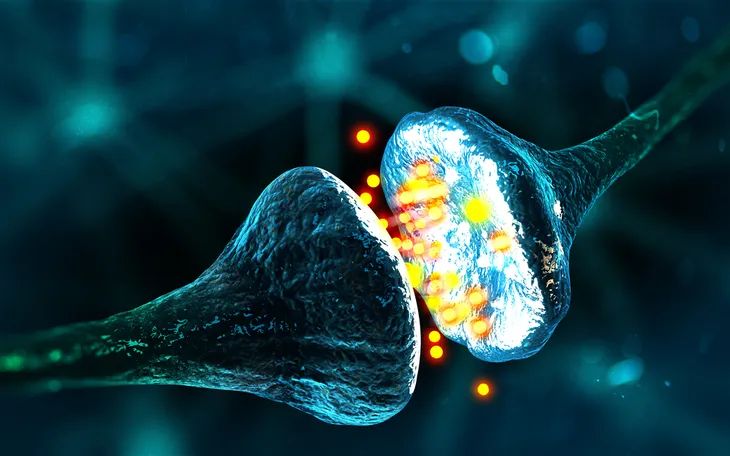According to WebMD, schizophrenia is “a serious brain disorder that distorts the way a person thinks, acts, expresses emotions, perceives reality, and relates to others.“ This makes it challenging to function as normal, whether at work or school, or when interacting with others. Although it’s not a very common condition—affecting only about 1-percent of the worldwide population—it can be quite chronic and disabling.
Unfortunately, schizophrenia is not curable, however it can be managed with proper treatment. Therefore, it’s important to understand what causes schizophrenia, as well as what symptoms to look out for.
Symptoms:
Delusions
Delusions are an incredibly common symptom associated with schizophrenia. In fact, HelpGuide.org indicates that they occur in “more than 90-percent of those who have the disorder.” Some of the most common types include delusions of persecution, where individuals believe that someone is out to get them, and delusions of reference, where “a neutral environmental event is believed to have a special and personal meaning,” such as believing someone on TV is speaking directly to them.
People with schizophrenia may also believe they are someone famous or important, like a celebrity, or that they have special powers. This type is known as delusions of grandeur. Or they may believe that their “thoughts or actions are being controlled by outside, alien forces”—known as delusions of control.
Hallucinations
In addition to delusions, people with schizophrenia commonly have hallucinations, where they experience sensations that exist only in their minds. Although these sensations aren’t real, the Mayo Clinic says, “for the person with schizophrenia, they have the full force and impact of a normal experience.”
Although any of the five senses—sight, sound, taste, touch, and smell—may be involved in these hallucinations, hearing voices is the most common type. These voices are the person’s own internal self-talk, but they hear them as coming from someone externally, typically someone they know.
Trouble Concentrating and Disorganized Speech
Schizophrenia can cause people to have trouble concentrating, which can make it challenging for them to follow along when others are speaking to them. As a result, WebMD says, “…it might seem like they’re zoning out or distracted.” The source adds that lack of concentration can make activities like watching TV a struggle, as they “might lose track of what’s going on.”
Additionally, people with schizophrenia may find it difficult to organize their thoughts, which is externally manifested in the way they speak. For example, HelpGuide.org says they may “respond to queries with an unrelated answer, start sentences with one topic and end somewhere completely different, speak incoherently, or say illogical things.”
Disorganized Behavior
In addition to disorganized speech, individuals with schizophrenia may also exhibit disorganized behavior. HelpGuide.org explains that this occurs because the disorder “disrupts goal-directed activity, impairing your ability to take care of yourself, your work, and interact with others.”
Some examples of how this disorganized behavior may be demonstrated include moods that shift from “childlike silliness to unpredictable agitation,” says the Mayo Clinic. They may also struggle to complete tasks and demonstrate a lack of impulse control or inhibition.
Different Movements
Typically in conjunction with disorganized behavior, people with schizophrenia may demonstrate abnormal motor behavior. For instance, WebMD says they “can seem jumpy,” or “they’ll make the same movements over and over again.”
Or, conversely, individuals with schizophrenia may sometimes be catatonic. In this state, they can become completely still and unresponsive, sometimes for hours or days at a time. Catatonia does not present itself in everyone with the disorder, though, and is considered to be a quite a rare symptom.
Negative Symptoms
The term ‘negative symptoms’ actually refers to “the absence of normal behaviors found in healthy individuals,” says HelpGuide.org. This may include a lack of emotional expression, such as a flat voice, no eye contact, or a blank facial expression.
Individuals with schizophrenia may also struggle with a lack of motivation, in which they lose interest in daily activities like self-care and cooking. They may also withdraw from others socially, often due to delusions of persecution, or exhibit inappropriate emotional responses to situations.
Causes:
Genetic Causes
Although it’s not yet known exactly what causes schizophrenia, there are a variety of different risk factors that can increase a person’s likelihood of developing the condition, the first of which is genetics, as schizophrenia tends to run in families.
For example, if a parent or sibling has the disorder, you have a 10-percent chance of getting it yourself. If both parents have schizophrenia, you have a 40-percent chance to develop the condition. And if you have an identical twin with schizophrenia, there is a 40 to 65-percent chance that you will have it as well.
There is no ‘schizophrenia gene,’ however; rather, “It’s more likely that different combinations of genes make people more vulnerable to the condition,” says the NHS.
Environmental Causes
Many different environmental factors have been reported to be associated with increased risk for schizophrenia, such as prenatal exposure to certain types of viral infections, and inadequate nutrition in utero, especially during the first 6-months of a pregnancy.
WebMD adds that taking certain drugs can also increase a person’s risk. These include psychoactive or psychotropic drugs, like methamphetamines or LSD, as well as marijuana. The source says “The younger you start and the more often you use these drugs, the more likely you are to have symptoms like hallucinations, delusions, inappropriate emotions, and trouble thinking clearly.”
Abnormal Brain Structure
Schizophrenia may also occur due to abnormalities in a person’s brain structure. In comparison to normal brain images, experts found that in people with schizophrenia, ventricles were larger and there “were fewer connections between brain cells,” says WebMD.
The source adds that another key difference is that “parts of the brain that deal with memory, known as the medial temporal lobes, were smaller.” These abnormalities aren’t present in everyone that has schizophrenia, however, but the NHS says, “…they suggest schizophrenia may partly be a disorder of the brain.”
Neurotransmitters
Another brain-related risk factor for schizophrenia has to do with neurotransmitters—the chemicals that are responsible for communication between brain cells. Specifically, the NHS says “schizophrenia may be caused by a change in the level of two neurotransmitters: dopamine and serotonin.”
The source indicates that some studies have found that the disorder may result due to an imbalance in dopamine and serotonin, while other research has found “a change in the body’s sensitivity to the neurotransmitters is part of the cause of schizophrenia.”
Pregnancy and Birth Complications
In addition to being prenatally malnourished or exposed to certain viral infections, there are a variety of other pregnancy and birth complications that can increase a person’s risk of developing schizophrenia at some point during their life.
According to the NHS, these include premature labor, a lack of oxygen during birth, and low birth weight, which are thought to be risk factors because they may “have a subtle effect on brain development.”
Stress
Stress isn’t a direct cause of schizophrenia, but it is considered to be a trigger for those who are already at risk due to any of the above-mentioned factors. Not the day-to-day kind of stress, however, but rather exceptionally challenging events like losing a job or home, divorce, or grieving the loss of a loved one.
Predisposed individuals who experience abuse—whether emotional, physical, or sexual—during their life are also more likely to develop schizophrenia.















